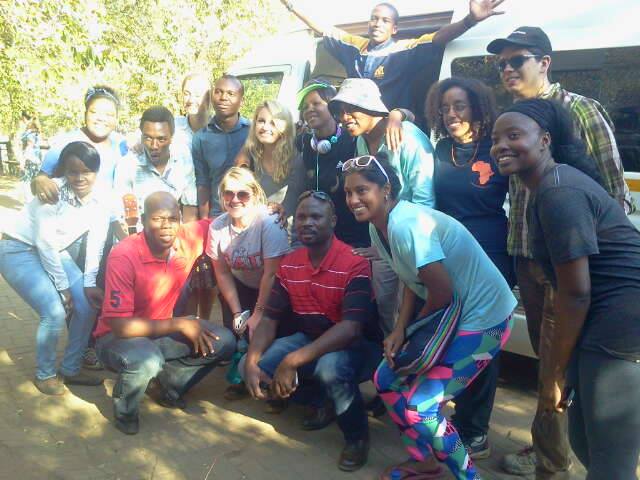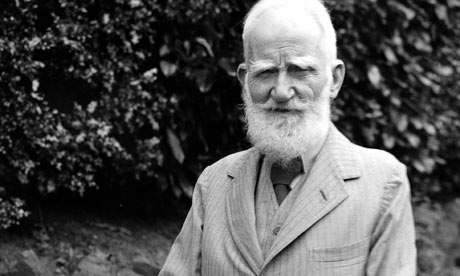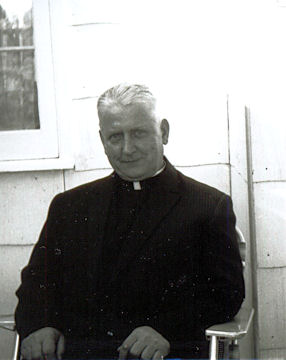No snowflake in an avalanche ever feels responsible. – Stanislaw Lec

I’m the one in the top left who you can barely see because her skin is reflecting the sun.
I am embarrassed that we are more than halfway through the summer and I have not yet dedicated a blog post to the University of Venda (UNIVEN) students we have been collaborating with throughout the entirety of this project. Though it is easy to become possessive of the research we have been doing since we spent much of this past academic year in preparation of this project, our ultimate goal is to be able to hand over the reins to people already living in working in Limpopo. Why is this important to us?
In the past couple of decades, Community-Based Participatory Research (CBPR) has emerged as one of the most prominent public health research frameworks and social change mechanisms in practice. Championed as “a collaborative approach to research that equitably involves all partners in the research process and recognizes the unique strengths that each brings,” it “begins with a research topic of importance to the community with the aim of combining knowledge and action to bring about social change to improve community health.”

“The task of the modern educator is not to cut down jungles but to irrigate desserts” – C.S. Lewis
The goal of someone who is doing CBPR is similar to that which C.S. Lewis tasks the modern educator: “not to cut down jungles, but to irrigate deserts.” Public health and medical research has a terribly long history of taking advantage of people for “the sake of science.” Much of the past half century in public health research has been spent trying to justify this kind of scholarship in the face of the emotional-historical scars left behind by disasters such as the Tuskegee Syphilis Study and the Willowbrook Hepatitis Study. With this in mind, the essence of CBPR is probably best summed up echoing the words of George Bernard Shaw: “I’m not a teacher: only a fellow traveler of whom you asked the way. I pointed ahead – ahead of myself as well as you.” In other words: CBPR aims to erase the formal lines between the researcher and the researched to empower communities to take charge of ensuring their own well being.

“I’m not a teacher: only a fellow traveler of whom you asked the way. I pointed ahead – ahead of myself as well as you.” – GBS
Though my team did not write the procedures for our project using strict CBPR methodology, it is these principles that have guided our collaboration with the University of Venda. Though we have spent plenty of time with our student research partners during the week preparing focus groups, writing curriculum and practicing our lesson plans, we have spent almost an equal amount of time just trying to get to know them better. We’ve had cookouts and performed in talent shows together; we’ve written poetry and sung songs while waiting for our bus to arrive to take us to Tiyani Clinic. We were even given Xitsonga names by the Tiyani clinic staff that our UNIVEN friends starting using. Mine was Topisa meaning “When she speaks, people listen”—a name that had the unfortunate effect of making me stutter much more often in public.
In last week’s post, I discussed the details of dignity–its form and features and what it might look like if we were to encounter it face-to-face. This week, as an extension of that discussion, I want to touch on how and why we must preserve dignity.
In public health, we talk a lot about this idea that “health is a human right.” As intuitive as this principle may sound, its worth was not internationally recognized until September of 1978 at the International Conference on Primary Health Care at Alma-Ata, USSR. The first tenet of the Declaration of Alma Alta is as follows:
The Conference strongly reaffirms that health, which is a state of complete physical, mental and social well-being, and not merely the absence of disease or infirmity, is a fundamental human right and that the attainment of the highest possible level of health is a most important world-wide social goal whose realization requires the action of many other social and economic sectors in addition to the health sector.
The Catholic Church maintains that, “human dignity can be protected and a healthy community can be achieved only if human rights are protected and responsibilities are met.” So if we assume protecting dignity also ensures the health of communities then the question we must ask is how can we best protect human rights and responsibilities. The answer, I believe, comes to us through the life of Jonas Salk.

“What makes your heart leap?” – Jonas Salk
Self-proclaimed bio-philosopher and inventor of the polio vaccine, Salk went down in history not for his biomedical innovation, but for his philosophical outlook.
“Who owns the patent on this vaccine?’
‘Well, the people, I would say. There is no patent. Could you patent the sun?”
Salk was raised to believe that each person was responsible for making a difference in the world. However as he aged, he came to believe that we aren’t just responsible for making any kind of positive difference in the world, but one that will outlast our life times. In this 1985 interview with Richard Heffner on The Open Mind, Jonas Salk offered the following framework for how we must live our lives:
The most important question we can ask ourselves is:
“Are we being good ancestors?”
Conversations about ancestry tend to have somewhat of an archaic tinge to them these days. If ancestry comes up at all, it’s in occasional conversations with grandparents or when your friend happens to mention that their great-great-great-great-great-great-great-great-great uncle was a duke or some vaguely important diplomat. If we talk about ancestry at all, it is in the context of who our ancestors were, rather than whose ancestors we will one day be.
What is missing from the majority of modern day discussions on human rights is this question of ancestry. Jonas Salk’s call to good ancestorship asks us to consider what it means to be human. Do our lives just have meaning in the present while we are living them, or can they retain meaning after we have passed? A sense of ancestry tries to get a feeling of inheritance. The opportunities and resources that we are privy to today do not truly belong to us; they have been passed down to us by many generations of our forbearers. And with that in mind, we have a responsibility to protect these opportunities and resources so they are available to generations to come.
It is hard to convince the general public of this. For instance, much of what we have inherited in the field of public health are things that have become such ordinary aspects of our daily scenery that it is hard to imagine people ever got along without them. Storm drains, stop lights, sidewalks and even our view of the night sky have been passed down to us from generations before us who fought to pass laws and start programs that would ensure the public health in a sustainable way. But because we were not involved in safeguarding their existence, it is very easy to take them for granted.
This past week, I have been reading He Leadth Me by Fr. Walter J. Ciszek, a Jesuit Priest who spent 23 years in Soviet prisons and Siberian labor camps. Similarly to Viktor Frankl, through his time in captivity Fr. Ciszek often reflected on the different preconditions of dignity and how one can find meaning in life in devastating circumstances. Not long after arriving in the Siberian work camps, Fr. Ciszek had the following realization:
It suddenly occurred to me how little I had ever had to worry about such things in the past. Even in prison, such things as food, shelter, and clothing–poor as they might have been–had been provided for me…Now, as I watched the thieves and criminals providing for themselves in a universe with its own set of standards and “justice”, I began to wonder about my own survival. The children of this world, surely, were wiser than the children of the light. How would I survive among them? For them, nothing existed beyond this material world and this moment. They survived because they learned how to survive. They were masters of the art of survival. Outside the bounds of civilized behavior or conscience , they preyed upon anyone weaker than themselves and revenged themselves upon society by crimes of violence and theft. In their view, society owed them something. So they took it. It was as simple as that. (Ciszek 86)
What I find most interesting in Fr. Ciszek’s reflection here is the relationship he proposes between time and dignity: that an ability to plan for and live beyond the present moment is the defining difference between the art of survival and the art of living.

Fr. Ciszek one year after his release from the Siberian work camps
Another way of expressing Fr. Ciszek’s point would be to say that to protect human dignity we must protect each other’s sense of ancestorship–our relationship with history and with home. Being a good ancestor calls for a deeper sense of belonging. That our human inheritance does not just consist of honoring the lives of all of those who have come before us, we also must work to honor the lives of those still to come.
